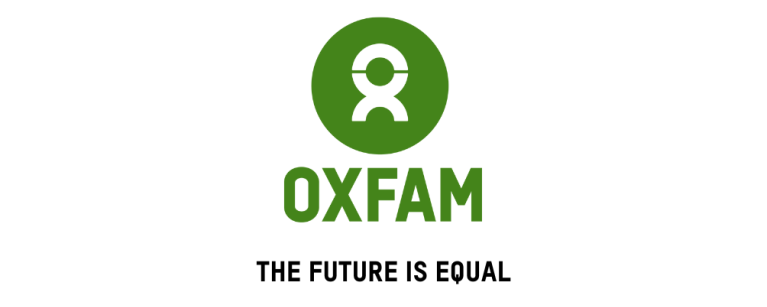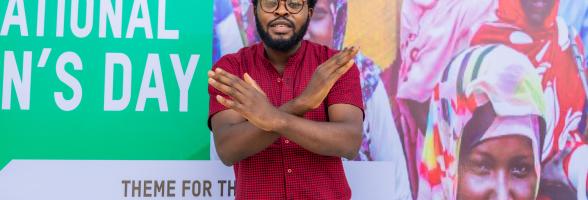“In Nigeria, where nine in ten of the poorest women give birth with no midwife or skilled birth attendant. Oxfam tracked development funds from the EIB, Germany, France and the IFC to the high-end private Lagoon Hospitals in Lagos, where the most basic maternity package costs more than nine years’ income for the poorest 10 percent of Nigerians.”
Investments of taxpayers’ money into dodgy deals, profiteering and exploitation, health
scandals and human rights abuses —all with little or no accountability. This includes private
hospitals imprisoning patients and retaining deceased relatives until bills are paid.
Patients living in poverty in Africa are being bankrupted by private healthcare corporations backed by
multi-million-dollar investments from development finance institutions (DFIs) run by the UK, French,
German and other rich country governments.
DFIs like the World Bank’s International Finance Corporation (IFC) and the European Investment Bank
(EIB) invest public funds via the private sector to help foster economic development in the Majority
World and tackle poverty.
However, Oxfam publishes an investigation on DFI funding into private hospital chains and other forprofit
healthcare corporations operating in low- and middle-income countries, including African
countries, and finds cases of them:
- Extorting and imprisoning patients including newborn babies, even retaining dead bodies, for the non-payment of bills;
- Profiteering, including during the pandemic, and routinely over-charging patients into
bankruptcy and poverty; - Denying treatment to those who can’t afford it —even in emergencies— and pricing services
and medicines wildly out of reach of most people in local communities; - Being involved in tax tricks, price rigging, and medical negligence leading to deaths;
- Failing to prevent human rights abuses, including organ trafficking by staff and exploitative
practices, for example by pressuring patients to have unnecessary and expensive medical
procedures.
African countries covered in the report include Kenya, Nigeria, Uganda and Mozambique.
‘‘These abuses are profoundly disturbing. And they’re happening while Africa’s woefully underfunded
public healthcare crumbles at the feet of a mountain of debt, the result of an unfair global financial
system designed by the same Western powers. Once again, this research shows the dishonesty of so-called ‘development partnerships’ between rich countries and those of the Majority World,” said Oxfam in Africa Director Fati N’Zi-Hassane.
Oxfam’s investigation into investments by European DFIs into the private healthcare sectors of Kenya, Nigeria, Uganda, Mozambique and other Majority World countries finds:
- 358 health investments between 2010 and 2022, more than half (56 percent) of which went
into private healthcare corporations operating in low- and middle-income countries; - At least $2.4 billion channeled into health corporations that can be tracked, but Oxfam found at
least another 269 health investments for which the value is not disclosed; - Most of these health investments (81 percent) are being “lost from sight” —sub-invested out
via a network of financial intermediaries, 80 percent of them located in tax havens like
Mauritius, Jersey and the Cayman Islands; - Little to no public accountability of these investments and no evidence as to whether they are
improving access to healthcare for people living in poverty, especially women and girls; - Extremes of private hospital chains offering 5-star hotel treatment for politicians, sports stars
and celebrities at elite prices, through to people being extorted, exploited or excluded
depending on their ability to pay.
“Half the world’s population can’t get essential healthcare. Every second, sixty people are plunged into poverty by medical bills. Donor countries and development banks have long promised that they can drive down healthcare costs for people living in poverty by investing taxpayers’ money into the private sector. Instead, costs are rocketing up and causing harm,” said Oxfam International’s Health Policy Lead Anna Marriott.
The Maputo Private Hospital in Mozambique, backed by the IFC during the pandemic, reportedly
charged COVID-19 patients a $6,000 deposit for oxygen and $10,000 for a ventilator. Similarly, in Uganda, the Nakasero Hospital reportedly charged $1,900 per day for a COVID-19 bed in intensive
care, while the TMR Hospital charged $116,000 for one patient who died from the virus. Nakasero Hospital is funded by France, the EU and the IFC while TMR Hospital is supported by the UK and
France.
While the number of mothers dying in pregnancy and childbirth is rising around the world, Oxfam found that DFI funded hospitals are far out of reach for those most needing life-saving healthcare. The average cost of an uncomplicated childbirth in these private hospitals is more than a year’s income for an average earner in the bottom 40 percent of the population, while the cost of a caesarean birth is more than two years’ income.
In Nigeria, where nine in ten of the poorest women give birth with no midwife or skilled birth attendant. Oxfam tracked development funds from the EIB, Germany, France and the IFC to the high-end private Lagoon Hospitals in Lagos, where the most basic maternity package costs more than nine years’ income for the poorest 10 percent of Nigerians.
Spent wisely, aid and other forms of government spending are essential in order to save lives and drive development. Ethiopia successfully used aid to achieve most of the health-related Millenium Development Goals by 2015, including the reduction of maternal deaths by more than 70 percent. In lower-income countries doing the most to stop women dying in childbirth, 90 percent of their healthcare comes from the public sector. COVID-19 has demonstrated how health security is dependent on delivering healthcare for all goals everywhere as soon as possible.
“It is more urgent than ever that governments stop this dangerous diversion of public funds to private healthcare and instead deliver on aid and other public funding promises in order to strengthen public healthcare systems that can deliver for everybody. Majority World governments should also step up and be more assertive in directing foreign public investments into better health outcomes for their people,” Marriott said.
‘‘African governments must purge their health sectors of these injustices and inequalities.’ They must stand strong in the face of pressures to privatize public goods and services like healthcare to preventable deaths, especially those of women and children,’’ said N’Zi-Hassane.
Oxfam is calling for a stop to all future direct and indirect DFI funding to private healthcare and an urgent, independent investigation into all current and historical investments.
Maxwell Osarenkhoe | maxwell.osarenkhoe@oxfam.org | +234 807 594 9898
For updates, please follow @OxfaminNigeria and visit our website nigeria.oxfam.org
Download Oxfam’s report “Sick Development”.
The development finance institutions analyzed in the reports are the UK government’s British International Investment (BII, formerly CDC), Germany’s Deutsche Investitions- und Entwicklungsgesellschaft (DEG), France’s Proparco, the European Investment Bank (EIB), and the World Bank Group’s private sector arm, the International Finance Corporation (IFC).
The IFC invests alongside European DFIs in 42 of the same financial intermediaries and 112 of the same private health corporations.
According to the WHO and the World Bank, the number of people suffering catastrophic and impoverishing out-of-pocket health spending was between 1.366 billion and 1.888 billion people in 2017. 1.888 billion divided by 31,536,000 seconds (in a year) = 59.8 people per second.
According to E. Suzuki, C. Kouame and S. Mills (2023), the number of mothers dying in pregnancy and childbirth has either stagnated or increased since the SDGs were agreed.
Ethiopia successfully used aid to reduce maternal deaths by more than 70 percent.
In low- and lower middle-income countries doing most to stop poor women dying in childbirth, 90 percent of the care provided comes from the public sector, and 8 percent from the private sector. Download Oxfam’s report “Public good or private wealth?” for more information.


